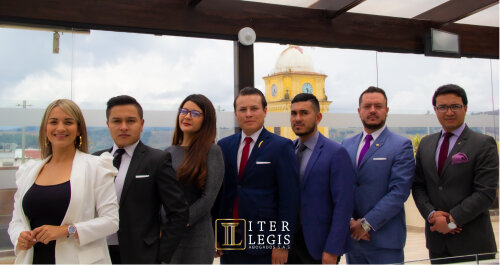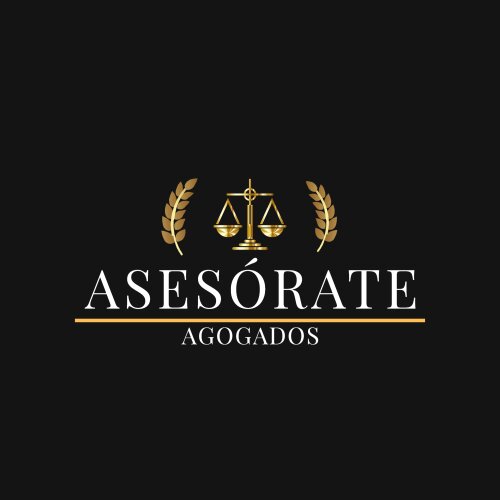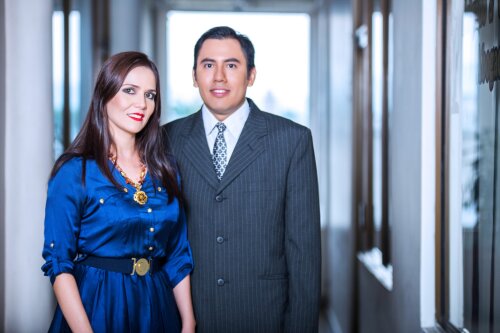Best Faith-Based Law Lawyers in Colombia
Share your needs with us, get contacted by law firms.
Free. Takes 2 min.
Or refine your search by selecting a city:
List of the best lawyers in Colombia
About Faith-Based Law in Colombia
In Colombia, Faith-Based Law refers to the intersection of legal matters and religious beliefs. This encompasses laws and regulations that affect religious institutions, individuals, and communities. Faith-Based Law in Colombia is shaped by the country’s constitution, which guarantees freedom of religion and the separation of church and state. It includes issues such as the legal recognition of religious entities, the rights of individuals to practice their faith, and the impact of religious beliefs on family law, education, and other areas.
Why You May Need a Lawyer
There are several situations where individuals or organizations might seek legal advice in the field of Faith-Based Law in Colombia. Common scenarios include:
- Registering a religious organization or ensuring it complies with legal requirements.
- Addressing conflicts between religious beliefs and secular laws, especially in areas like family law, employment, or education.
- Navigating issues related to religious discrimination or the infringement of religious freedoms.
- Acquiring legal support for property issues, such as ownership or management of religious premises.
- Understanding the scope of religious rights and obligations under Colombian law.
- Seeking advice on tax exemptions or benefits for religious organizations.
Local Laws Overview
Colombia's legal framework supports religious freedom and equality while maintaining the secular nature of its government. Key aspects relevant to Faith-Based Law include:
- Constitutional Rights: Article 19 of the Colombian Constitution guarantees freedom of religion, allowing individuals to practice and propagate their religion freely.
- Legal Recognition: Religious organizations must be registered with the Ministry of the Interior to gain legal recognition and operate formally.
- Property and Tax Exemptions: Recognized religious entities may receive certain tax benefits and exemptions.
- Education: The law permits religious education, but it must respect students' freedom of religion and belief.
- Family Law: Marriages can be conducted under religious or civil law, but only civil marriages are recognized legally unless registered with the state.
Frequently Asked Questions
What is needed to register a religious organization in Colombia?
To register a religious organization, you need to apply through the Ministry of the Interior, providing documentation that includes the organization's statutes, administrative structure, and proof of establishment.
Do religious organizations in Colombia have tax-exempt status?
Yes, registered religious organizations may qualify for tax exemptions, but they must comply with reporting and regulatory obligations set by the government.
Can religious beliefs influence family law decisions?
Religious beliefs can play a role in family matters, but civil law prevails. Parties can choose religious marriage ceremonies, but these must also be registered to be legally recognized.
Are there laws protecting individuals from religious discrimination?
Yes, Colombian law prohibits discrimination based on religion, ensuring that individuals are protected in employment, education, and access to public services.
Can a religious organization own property in Colombia?
Religious organizations can own property, but they must manage it in compliance with national laws and declare it for tax purposes.
How does the law handle religious symbols in public schools?
Public schools in Colombia maintain secularism, yet religious symbols may be allowed as part of cultural or historical displays, provided they respect all students' beliefs.
What should be considered when hiring staff for religious organizations?
While religious organizations can consider faith alignment in hiring, they must also adhere to labor laws and anti-discrimination policies.
Is homeschooling based on religious preferences allowed in Colombia?
Homeschooling is legal and can be influenced by religious beliefs, but it must align with educational standards set by the Ministry of Education.
Are religious ceremonies legally recognized as marriages in Colombia?
Religious ceremonies are not legally recognized unless the marriage is registered with civil authorities, ensuring conformance with state marriage requirements.
How can an individual assert their religious rights in Colombia?
Individuals can assert their religious rights through legal petitions, complaints to human rights ombudsmen, or seeking mediation services.
Additional Resources
If you need further assistance or information, consider reaching out to these resources:
- Ministry of the Interior: Handles matters of legal recognition for religious organizations.
- Colombian Constitutional Court: Provides judgments and guidance on cases involving religious freedoms.
- National Ombudsman (Defensoría del Pueblo): Offers support for those facing discrimination based on religion.
- Religious Councils and Associations: Represent various faiths and can provide advice and support.
Next Steps
If you believe you need legal assistance in the area of Faith-Based Law in Colombia, consider taking the following steps:
- Consult a Lawyer Specialized in Faith-Based Law: Seek professionals with expertise in religious legal matters.
- Gather Documentation: Collect all relevant documents, such as organizational statutes, personal identification, or previous legal decisions.
- Schedule a Consultation: Set up a meeting with a legal advisor to discuss your situation and explore potential solutions.
- Contact Relevant Authorities: Reach out to governmental bodies or ombudsmen if your issue involves administrative processes or discrimination claims.
- Explore Mediation: Consider mediation for resolving disputes amicably outside of court.
Lawzana helps you find the best lawyers and law firms in Colombia through a curated and pre-screened list of qualified legal professionals. Our platform offers rankings and detailed profiles of attorneys and law firms, allowing you to compare based on practice areas, including Faith-Based Law, experience, and client feedback.
Each profile includes a description of the firm's areas of practice, client reviews, team members and partners, year of establishment, spoken languages, office locations, contact information, social media presence, and any published articles or resources. Most firms on our platform speak English and are experienced in both local and international legal matters.
Get a quote from top-rated law firms in Colombia — quickly, securely, and without unnecessary hassle.
Disclaimer:
The information provided on this page is for general informational purposes only and does not constitute legal advice. While we strive to ensure the accuracy and relevance of the content, legal information may change over time, and interpretations of the law can vary. You should always consult with a qualified legal professional for advice specific to your situation.
We disclaim all liability for actions taken or not taken based on the content of this page. If you believe any information is incorrect or outdated, please contact us, and we will review and update it where appropriate.
Browse faith-based law law firms by city in Colombia
Refine your search by selecting a city.















